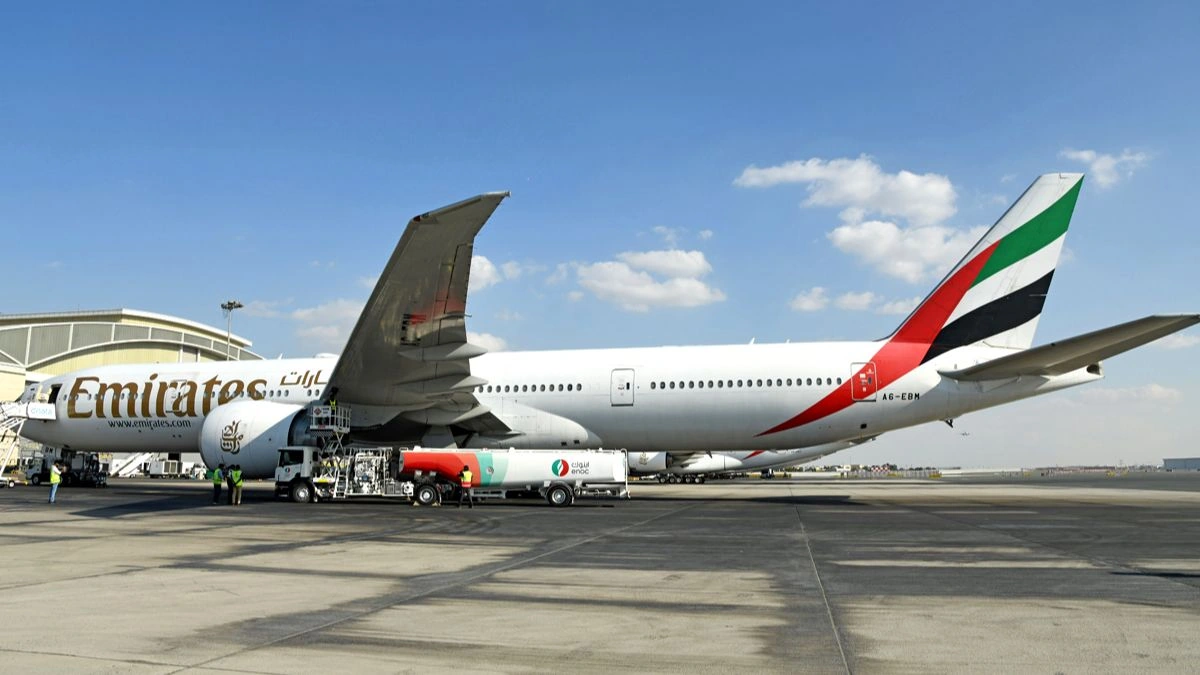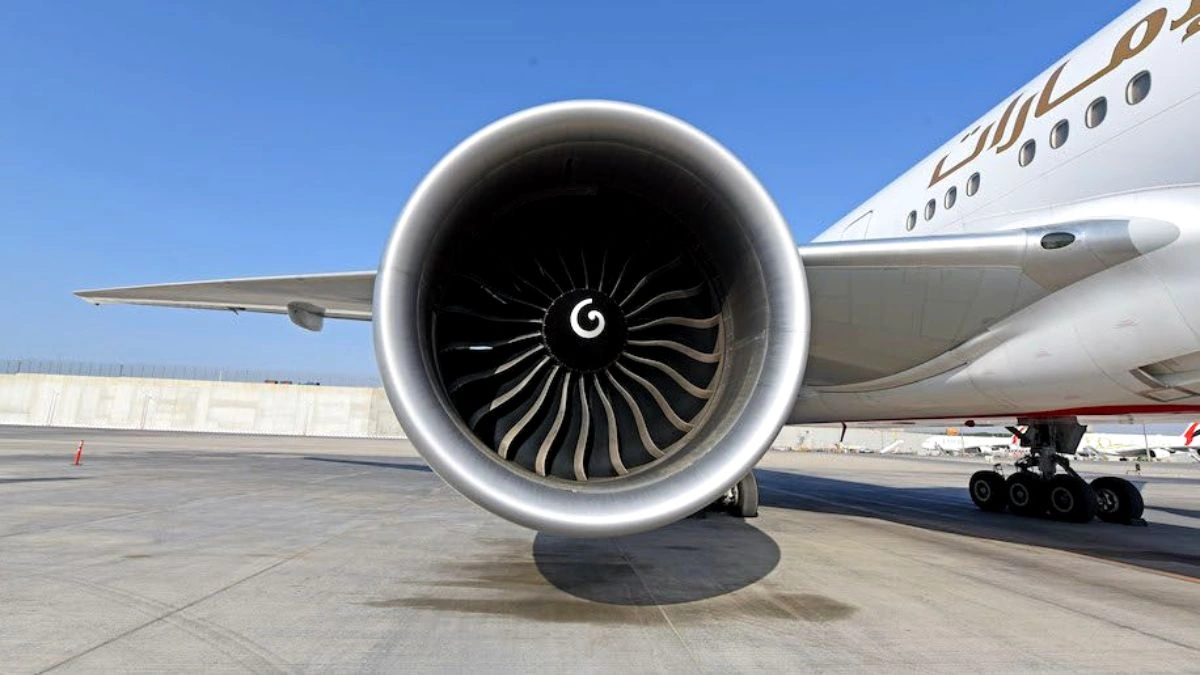News
Emirates Completes Ground Testing For 100% Sustainable Aviation Fuel Engine

In a groundbreaking move by Emirates Airlines, Sustainable Aviation Fuel (SAF) was used in one of the flights and a successful ground engine test was completed using the fuel type. The test was done on Monday and the fuel was used in one of the GE90 engines of a Boeing 777-300ER aircraft, while the other engine ran on normal aviation fuel.
The authorities wanted to analyze if the flight can run on specially blended 100 percent SAF without affecting its performance or making any alterations to the aircraft systems or the need for any maintenance procedure on the engine or the aircraft.
The SAF is capable of cutting down 80 percent of carbon emissions in its entire fuel cycle
One of the main advantages of using SAF is that it reduced the carbon emission during the fuel’s life cycle by over eighty percent. The positive test results in the ground engine test will lead to a full-fledged experimental test flight this week using 100 percent SAF in one engine.
The decision to use two different fuels in each of the engines will help analyze and compare the performance, behavior, and efficiency of both of them. The test flight will also be able to carry out a seamless flight experience maintaining the optimum functioning of the aircraft engine and airframe fuel systems.

The ground test was carried out with all the necessary precautions in place. The pre-inspection activities were completed and then as the first step of the test, the Honeywell 331-500 auxiliary power unit (APU) was started using the 100 percent SAF. The APU was then put in full capacity with SAF to start the engines.
The left engine was taken through its full power range and it was making use of the same settings that will be used later this week for the experimental flight. These settings included the idle, takeoff, and climb settings set up at the normal flight durations and working with maximum speed and intensity.
The cruise settings were applied and the engines ran for around fifteen minutes. They were cooled down after the end of the simulation and the fuels were taken in two different fuel tanks to maintain the segregation. After the whole test was completed, the engine data was downloaded from the aircraft for further comparison, analysis, and review.
The SAF testing is part of a Memorandum of Understanding (MoU) signed between GE Aerospace and Boeing that sought to develop a program under which a test flight would be conducted using the 100 percent SAF on the Emirates 777-300ER powered by the GE90 engines.
As part of the sustainable economy vision of the UAE administration, Emirates airlines have been collaborating with Boeing, Honeywell, Virent, GE Aerospace, and Neste on the SAF fuel blend testing. They were successful in developing a blend of SAF that was equally powerful and efficient as conventional jet fuel. The collaboration also helped in conducting proper technical analysis and maintaining operational requirements needed for ground testing and subsequent test flight procedures.
The current testing will contribute to the optimistic research conducted on synthetic fuel blend components and biofuels. It will also pave the way for standardization and approval of SAF for commercial use in the aviation industry.
Emirates has always been at the forefront of this innovation and they regularly participate in projects and initiatives directed at the development of SAF. The airlines will work together with engine airframe manufacturers and SAF providers to promote the use of SAF blends in the industry. Today, fifty percent of SAF blend has been approved for use with conventional jet fuel.
Following the example of Emirates, the Abu Dhabi Airline Etihad has joined up with Masdar, ADNOC, bp, and Tadweer to conduct a feasibility study into the prospect of producing SAF and other renewable products like naphtha and renewable diesel using municipal solid waste (MSW) and hydrogen. This study will offer an opportunity for the five partners to establish a strong production chain in the UAE of high commercial value.
Related Topics
🔹Emirates Adds Two More Services to Australia Due To High Demands
🔹Emirates Flight A380 To Casablanca Is About To Resume
It will also mark the beginning of the first commercial-scale production unit in Abu Dhabi. Etihad also released its new Airbus A350-1000 last year, starting a special flight from Abu Dhabi to Paris. The aircraft is named Sustainability50 and it runs on the Rolls-Royce Trent XWB engines which are considered one of the most efficient engines in the world.
Aviation is considered one of the major players in the UAE economy contributing to over thirteen percent of the national gross domestic product and this industry is set to grow more in the coming decades.
In other news, Emirates is on a global expansion plan and they have announced that they would be adding more flights to two major Australian cities, Melbourne and Sydney. The airline is also planning to restart its service from Sydney to Christchurch, New Zealand.
The target flight rate of the airlines is around 63 weekly flights to Australia carrying around 55,000 passengers every week to and from the major cities. This will further strengthen the 25 years of the long-standing relationship between the Emirates and Australia.